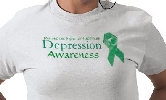How to Make Sure Your Senior Loved Ones Are Driving Safely
According to the Federal Highway Administration, the highest number of motor vehicle fatalities occurs for drivers over the age of 70 and drivers under the age of 20. These fatalities include both automobile accidents involving other vehicles and pedestrians being hit. As we age, all of our senses are impacted by the lack of regeneration of our cells in all parts of our body and even if a senior has not been impacted by an age-related illness or memory loss, the physical capability to respond quickly will become slower. However, in the instance that memory loss or another degenerative disease, such as macular degeneration, is present, it is even more important to monitor driving capabilities as these diseases sometimes progress slowly, but still can have a major impact on physical and cognitive abilities.
As an accident cannot only cause death, but perhaps emotional and financial damage, many states have passed laws which require seniors to renew their driver's license in person or take a new written exam or actual driving skills test upon renewal. The easiest way for family members to begin a conversation about safe driving is to discuss the driving renewal process in the senior's home state to make sure they are in compliance. There are also may be programs available for elder drivers which make it easier to ask for a special review of their driving skills, such as in California where a complaint about a driver's capabilities can be filed and then the law enforcement agency will follow-up. Due to anti-age discrimination campaigns, approaches such as these were enacted, rather than mandatory driving tests at a certain age.
Everyone has heard an unfortunate story about an accident involving an older driver who perhaps did not have the vision, hearing, or awareness to avoid the accident. The farmer's market incident in Santa Monica, where a senior driver stepped on the gas pedal instead of the brake, killing 10 people and leaving 63 injured, prompted action by state legislatures and community groups to help monitor when a senior might need to curb their driving. If you know an elder neighbor or loved one who is still driving, it is important to regularly montior their capabilities. Here is a checklist to assist you.
Safe Driving Checklist
1.Vision:Is the senior able to pass a vision test? (Cataracts, glaucoma and macular degeneration can all impact vision quality).
2.Dents:Are there any unexplained dents in the paint of the car or on the garage?
3. Passengers:Does the senior allow others to ride in the car with them when they are driving?
4. Emotions:Does the senior seem nervous or extra anxious when driving?
5. Routes:Does the senior take alternate routes to avoid major highways?
6. Obey Traffic Signals:Does the senior fail to stop at red lights or stop signs?
7. Speed Limits:Are speed limits obeyed (not driving too slow or too fast)?
8. Complaints: Have neighbors or others who see the senior driving (anyone who also attends a regular event they may drive to) observed anything unsafe?
If any of these raise red flags, find a time to discuss the senior's safety with them and come up with alternative transportation solutions to propose. You may also want to involve a third-party who is not related to the senior or a close friend, to serve as an authority who can listen to all concerns and propose other options for the senior. You may also want to check the senior driving laws in your state to find out if you can lean on the officials to assist you with terminating your senior loved one's driving. it is not easy to give up the independence of driving, but it is much worse to be the cause of a serious accident which could have been prevented.



